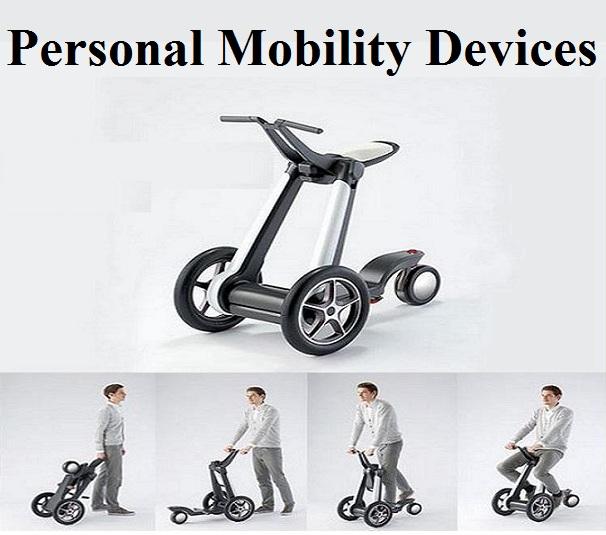Research Nester published a report titled “Personal Mobility Devices Market: Global Demand Analysis & Opportunity Outlook 2033” which delivers detailed overview of the global personal mobility devices market in terms of market segmentation by product, sales channel, end user, and by region.
Further, for the in-depth analysis, the report encompasses the industry growth indicators, restraints, supply and demand risk, along with detailed discussion on current and future market trends that are associated with the growth of the market.
The global personal mobility devices market is anticipated to grow with a CAGR of ~6% during the forecast period, i.e., 2023-2033. The market is segmented by end user into hospitals, clinics, care centers, homecare, and others. Out of these, the homecare segment is anticipated to garner the largest revenue by the end of 2033. A growing number of diseases have been identified as being more prevalent in the elderly population, including arthritis and chronic disabilities which are expected to drive segment growth during the forecast period. Over 245 million older persons suffer from mild to severe disabilities and 45% of older persons aged 60 and older have a disability.
The global personal mobility devices market is estimated to garner revenue of USD 21 Billion by the end of 2033, up from revenue of USD 15 Billion in the year 2023. Rise in incidence of disabilities and chronic illness, a huge base of geriatric population, rise in R&D activities, rise in disposable income, growing number of road accidents worldwide along with a large number of exports of mobility devices are some of the major factors anticipated to drive the growth of the market during the forecast period.
Geographically, the global personal mobility devices market is segmented into five major regions including North America, Europe, Asia Pacific, Latin America and Middle East & Africa region. Out of these, the market in North America is projected to garner the largest revenue by the end of 2033. A large number of geriatric patients and a large patient population in the region are expected to drive the personal mobility devices market in the region. Furthermore, the availability of personal mobility devices, improved access to healthcare, an increase in age-related illnesses, and better reimbursements for hospitals, are factors expected to fuel the regional market during the forecast period.
The research is global in nature and covers detailed analysis on the market in North America (U.S., Canada), Europe (U.K., Germany, France, Italy, Spain, Hungary, Belgium, Netherlands & Luxembourg, NORDIC [Finland, Sweden, Norway, Denmark], Poland, Turkey, Russia, Rest of Europe), Latin America (Brazil, Mexico, Argentina, Rest of Latin America), Asia-Pacific (China, India, Japan, South Korea, Indonesia, Singapore, Malaysia, Australia, New Zealand, Rest of Asia-Pacific), Middle East and Africa (Israel, GCC [Saudi Arabia, UAE, Bahrain, Kuwait, Qatar, Oman], North Africa, South Africa, Rest of Middle East and Africa). In addition, analysis comprising market size, Y-O-Y growth & opportunity analysis, market players’ competitive study, investment opportunities, demand for future outlook etc. has also been covered and displayed in the research report.
Rise In Geriatric Population Worldwide to Drive the Market Growth
As per the data by the World Bank, 747,238,580 people aged 60 or older lived around the world in 2021.
There is a rapid increase in the number of seniors over 65 around the world. As people age, their ability to perform physical tasks decreases. As chronic illness, fear of falling, and difficulty walking increase among the geriatric population, mobile device usage is expected to increase significantly. As a result, personal mobility devices are expected to be in high demand during the forecast period.
However, high production costs and difficulties using personal mobility devices are expected to operate as key restraint to the growth of global personal mobility devices market over the forecast period.
This report also provides the existing competitive scenario of some of the key players of the global personal mobility devices market which includes company profiling of Drive DeVilbiss Healthcare Ltd, Falcon Mobility Pte. Ltd., Rollz Mobility UK Ltd, GF Health Products, Inc., Invacare Corporation, Carex Health Brands, Inc., Kaye Products, Inc., Medline Industries, Inc., NOVA Medical Products Inc., Performance Health Holding Inc. The profiling enfolds key information of the companies which encompasses business overview, products and services, key financials and recent news and developments. On the whole, the report depicts detailed overview of the global personal mobility devices market that will help industry consultants, equipment manufacturers, existing players searching for expansion opportunities, new players searching possibilities and other stakeholders to align their market centric strategies according to the ongoing and expected trends in the future.
Research Nester is a leading service provider for strategic market research and consulting. We aim to provide unbiased, unparalleled market insights and industry analysis to help industries, conglomerates and executives to take wise decisions for their future marketing strategy, expansion and investment etc. We believe every business can expand to its new horizon, provided a right guidance at a right time is available through strategic minds. Our out of box thinking helps our clients to take wise decision in order to avoid future uncertainties.

